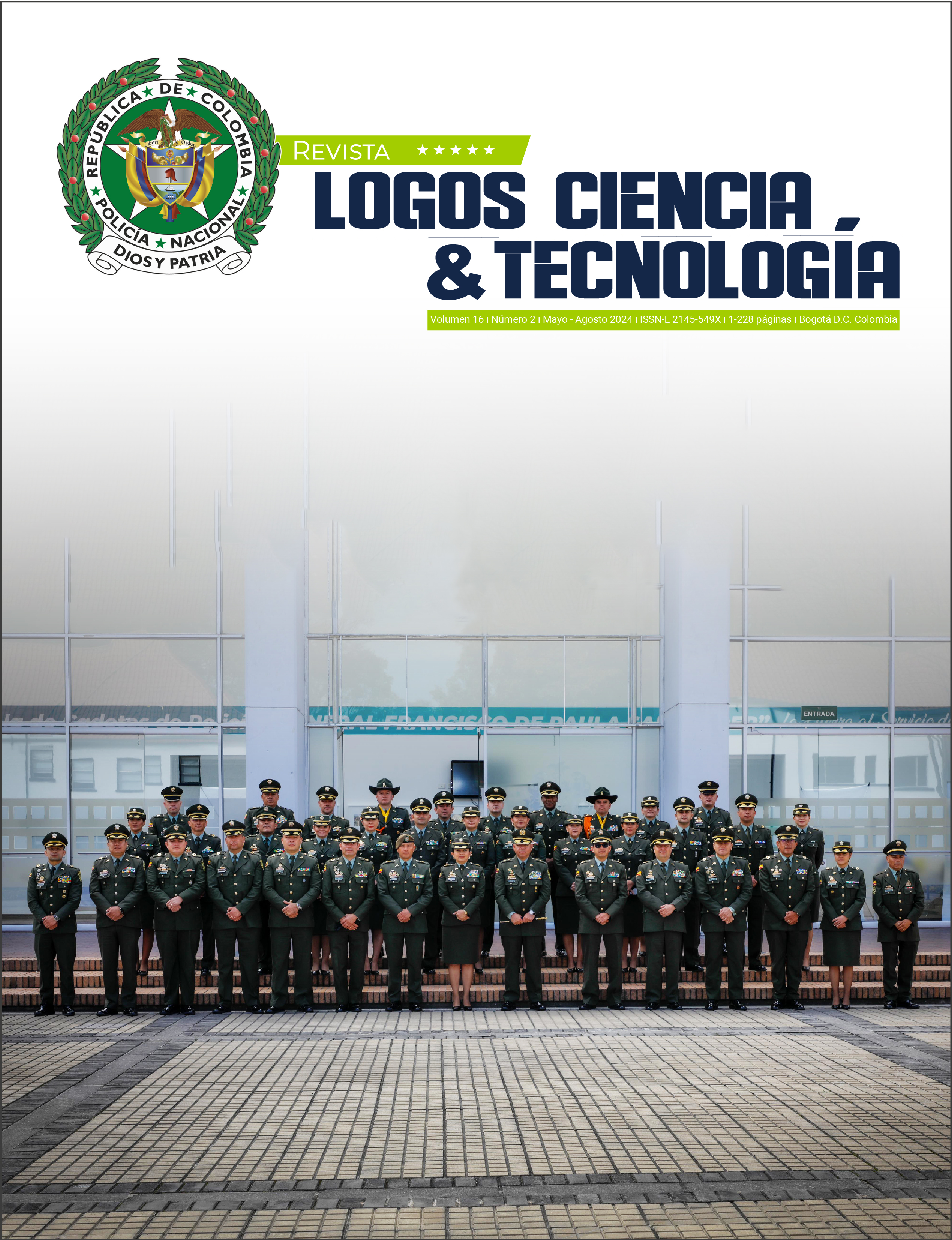The need to embrace the concept of criminal reiteration in the adolescent criminal responsibility system
DOI:
https://doi.org/10.22335/rlct.v16i2.1950Keywords:
recidivism, criminal repetition, resocialisationAbstract
This article refers to the factors that influence criminal repetition and recidivism in adolescents within the Colombian Criminal Responsibility System (SRPA, by its initials in Spanish). Its objective is to determine why the concept of criminal repetition in adolescents has to be assumed, instead of the classic conception of recidivism, in an adolescent penal system that is essentially restorative justice. It proposes the novel theory that reiteration cannot be considered a circumstance outside the SRPA. It highlights that knowing about the commission of perpetrated conduct or some degree of participation as author or participant, by the adolescent prior to the commission of a new criminal conduct, serves the purpose of the function of the sanction in the adolescent criminal process. Adding that, once the criminal repetition is known, the possibility of promoting the resocialising educational process by the entities responsible for the treatment of adolescents in conflict with the criminal law is expanded. Concluding that it is valid and necessary to take into account the repetition in criminal matters applied to adolescents that serves for graduation and to indicate the type of sanction to be imposed and avoiding the use of the concept of recidivism which is typical of retributive justice.
Downloads
References
Armendia, P. M. (2012). “Reincidencia”. Efectos frente a la libertad condicional. https://bit.ly/3Vt0rG3
Comisión Interamericana de Derechos Humanos. (2011). Justicia juvenil y derechos humanos en las Américas. https://bit.ly/3yLiXAt
Congreso de la República de Colombia. (2006). Ley 1098 de 2006. “Por la cual se expide el Código de la Infancia y la Adolescencia”. Diario Oficial 46.446 del 8 de noviembre de 2006. https://bit.ly/4b5S2gx
Corte Constitucional. (2008, 30 de abril). Sentencia C-425/08. M. P.: Alfredo Beltrán Sierra.
Corte Constitucional. (2009, 30 de septiembre). Sentencia C-684/09. M. P.: Humberto Antonio Sierra Porto.
Corte Constitucional. (2016, 13 de abril). Sentencia C-181/16. M. P.: Gloria Stella Ortiz Delgado.
Corte Constitucional. (2021, 2 de septiembre). Sentencia C-294/21. M. P.: Cristina Pardo Schlesinger.
Corte Interamericana de Derechos Humanos. (2002, 20 de mayo). Caso Instituto de Reeducación del Menor vs. Paraguay.
Corte Suprema de Justicia. (2008, 28 de mayo). Proceso 29391. M. P.: Jorge Luis Quintero Milanés.
Corte Suprema de Justicia. (2010, 7 de julio). Sala de Casación Penal, Radicado 33510. M. P.: Julio Enrique Socha Salamanca.
Corte Suprema de Justicia. (2013, 22 de mayo). Sala de Casación Penal, Radicado 35431. M. P.: Javier Zapata Ortiz.
Cuervo, K., & Villanueva, L. (2013). Reiteración y reincidencia delictivas en menores españoles con expediente judicial. Revista Mexicana de Psicología, 30(1), 61-68. https://bit.ly/3VvtEA0
Díaz, G. L. (2001). Derecho penal de menores. Tirant lo Blanch.
Gobierno de España. (1996). Código Penal español. Ministerio de la Presidencia, Justicia y Relaciones con las Cortes. BOE, (281), de 24/11/1995. https://bit.ly/3VeJYnu
Graña Gómez, J. L., Garrido Genovés, V. J., & González Cieza, L. (2007). Evaluación de las características delictivas de menores infractores de la Comunidad de Madrid y su influencia en la planificación del tratamiento. Psicopatología Clínica Legal y Forense, 7(1), 7-18. https://bit.ly/4c2kBNb
Instituto Colombiano de Bienestar Familiar (ICBF). (2022). ICBF le apuesta a disminuir la reincidencia de los delitos de adolescentes a través de su perfil de riesgo. https://bit.ly/45giP8j
Koetzle, D., Mellow, J., Piñol, D., & Pugliese, K. (2021). Guía práctica de evaluaciones de riesgos y necesidades para jóvenes en América Latina y el Caribe. American Institutes for Research & John Jay College of Criminal Justice. https://bit.ly/3wVYt7Q
Larrota Castillo, R., Gaviria Gómez, A. M., Mora Jaimes, C., & Arenas Rivero, A. (2018). Aspectos criminogénicos de la reincidencia y su problema. Revista de la Universidad Industrial de Santander. Salud, 50(2), 158- 165. https://doi.org/m2hf
Martín Gumersindo, D. (2016). Predicción del riesgo de reincidencia y características psicopatológicas de una muestra de menores dentro del sistema de justicia juvenil [Tesis doctoral, Universitat Jaume I). https://bit.ly/4aORNGm
Montejano Torres, L., Galán Jiménez, J. S. F., & De la Rosa Rodríguez, P. I. (2020). Reinserción social de adolescentes en conflicto con la ley. Un estudio conceptual. Estudios Socio-Jurídicos, 22(1), 233-262. https://bit.ly/4eo1bnx
Oficina de las Naciones Unidas Contra la Droga y el Delito (UNODC), & Alcaldía Mayor de Bogotá. (2022). El programa Diálogo: justicia restaurativa para jóvenes. Tomo 3. https://bit.ly/3XbJFwr
Rojas Londoño, S. M. (2016). Las circunstancias de agravación punitiva en el derecho penal colombiano. Una propuesta interpretativa a la luz del principio de non bis in ídem [Tesis de maestría, Universidad Eafit]. https://bit.ly/3x4es3D
Szczaranski Vargas, F. L. (2013). Aproximación a la reiteración delictiva y a la teoría concursal desde la teoría de la pena. Política Criminal, 8(16), 500-543. https://doi.org/m2hh
Torres Vásquez, H. (2022). La tercera vía del derecho penal en el delito de aborto y el principio de oportunidad en Colombia. Revista Academia & Derecho, 13(24), 1-22. https://bit.ly/3VvGX3M
Valencia Arias, J. O. (2015). La resocialización y la reincidencia de adolescentes en conductas delictivas en el Departamento de Caldas, Colombia. Summa Iuris, 3(2), 377-390. https://doi.org/10.21501/23394536.1834
Valgañon, M., Muñoz, L., & Briccola, M. (2014). La reiterancia de la conducta delictiva en adolescentes y su relación con las representaciones sociales acerca del rol ejercido por las madres. Salud & Sociedad, 5(1), 66-79. https://bit.ly/3KxF4xe
Published
Issue
Section
Categories
License
Copyright (c) 2024 Revista Logos Ciencia & Tecnología

This work is licensed under a Creative Commons Attribution-NonCommercial-NoDerivatives 4.0 International License.
This journal provides free and immediate access to its content (https://creativecommons.org/licenses/by/4.0/legalcode#languages), under the principle that making research available to the public free of charge supports greater global knowledge exchange. This means that the authors transfer the Copyrights to the journal, so that the material can be copied and distributed by any means, as long as the authors’ recognition is maintained, and the articles are not commercially used or modified in any way.
































